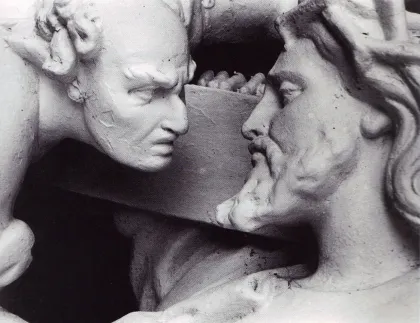Matthew Chapter 1
Christogenea, Matthew Chapter 1, Program Notes
The Jews love to insist that the New Testament books were written originally in Aramaic, as does George Lamsa, who is himself an Arab. And they insist that Yahshua and His disciples spoke Aramaic primarily, and all this helps them to conceal their identity to the general public, and to perpetuate their lies. There is a preponderance of evidence in the New Testament itself that every book of it, including the gospel of Matthew and Paul's epistle to the Hebrews, was originally penned in Greek. There is also a preponderance of evidence in Archaeology that – while Hebrew was spoken in Jerusalem at the time of Christ – Greek was the common language of Palestine. Even all of the coins of Herod and his successors contained Greek inscriptions, and not Hebrew or Aramaic (Literacy In The Time of Jesus, in Biblical Archaeology Review, July-August 2003, p. 36), and most of the inscriptions of the period are in Greek, and no other language (ibid., and also p. 25 of the same issue). Dozens of second and third century papyri have been found in Archaeology containing copies of the New Testament books in Greek, yet no such manuscripts have been found in Aramaic. The earliest Aramaic (also called Syriac) versions date to the 3rd to 4th centuries and are proven to have been translated from Greek. (See the Introduction to Nestle-Aland’s Novum Testamentum Graece, 27th edition, pages 65-68). Aside from this, there is also a preponderance of evidence in the Greek language itself, and the variations which occur across all known ancient Greek copies, that Greek was the original language of the Gospel (and so surely Isaiah 28:11 was fulfilled) and there is no other which these Greek manuscripts could have been translated from. There is also the fact that so many of the quotes made from the Old Testament are from the Greek of the Septuagint. This note I have adopted from my notes for Clifton written several years ago, for his presentation of the Revelation series of Bertrand Comparet. It surprises me that Comparet had fallen for this Jewish deception. We must not. The Gospel of Matthew was originally penned by Matthew, in Greek.






 Please click here for our mailing list sign-up page.
Please click here for our mailing list sign-up page.







